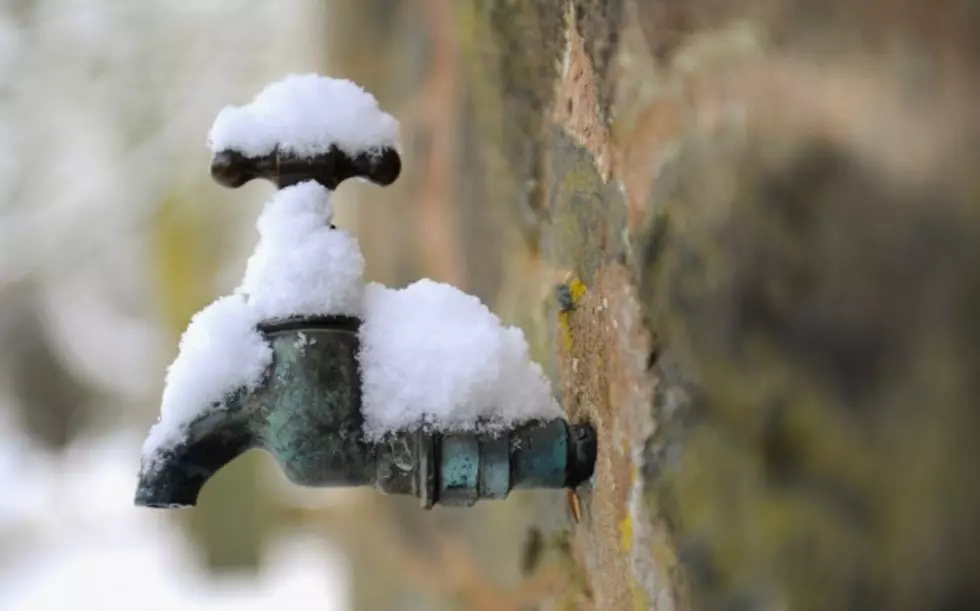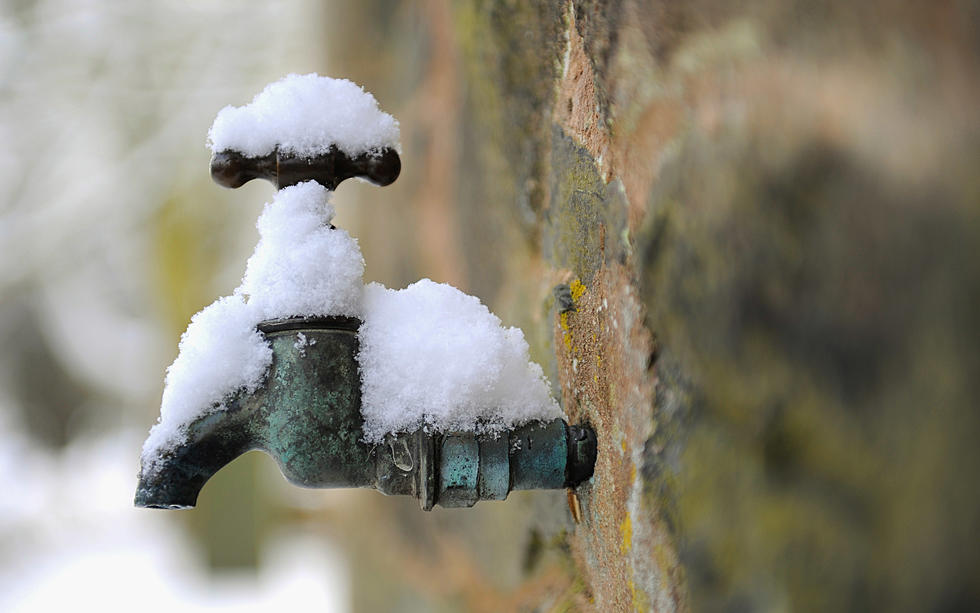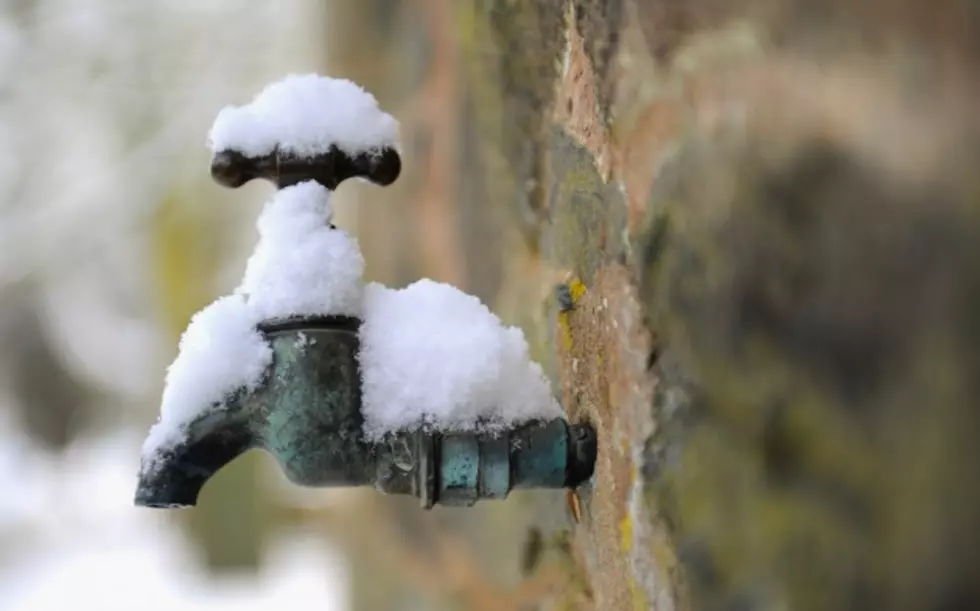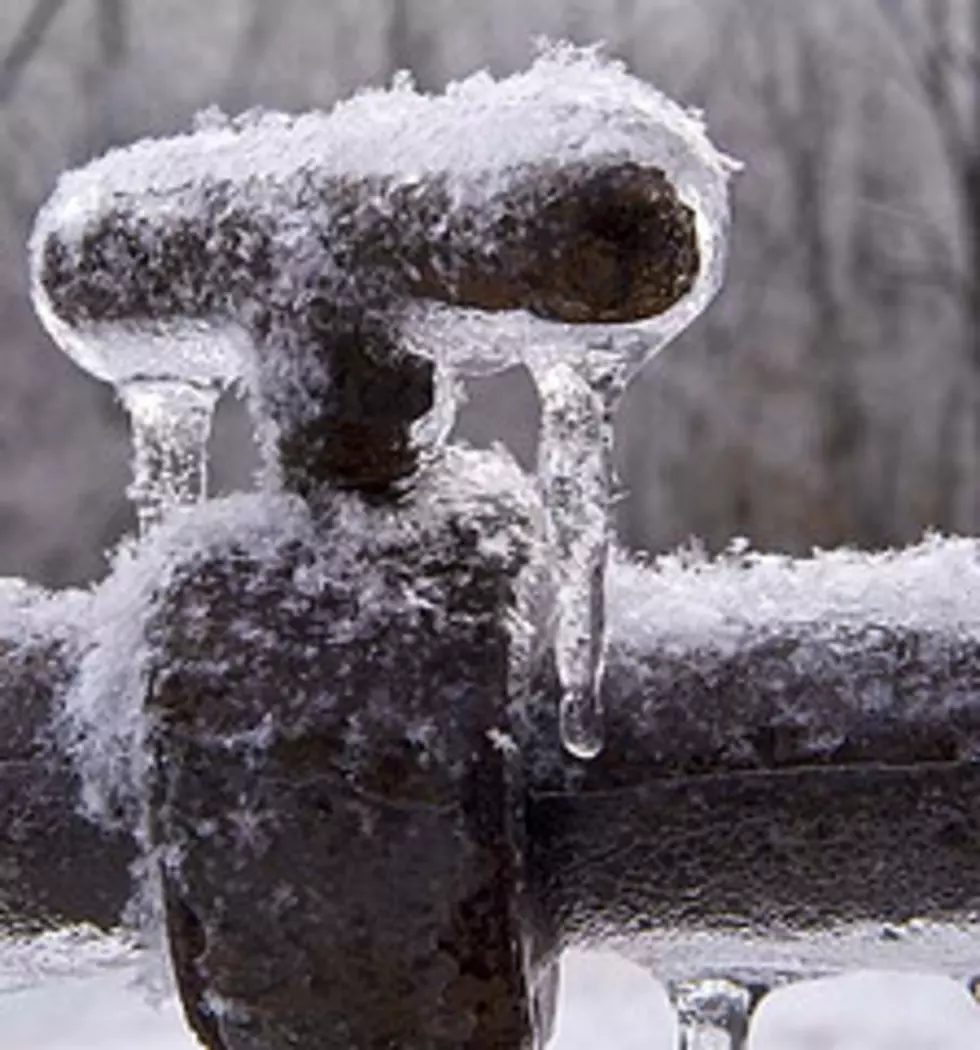
How to Deal with Frozen Pipes in a Deep Freeze
Plenty of Shreveport and Bossier City residents are worried about freezing temps during this cold weather spell and what it will do to our pipes. Here are some tips to consider as the temperature dips into the teens.
How cold does it have to get before you could have problems with your pipes? Most experts says that is about 20 degrees. What can you do about it? The following resource from the Institute for Business and Home Safety is about as good as it gets.
Pipes don’t break where the ice develops and expands the pipe, but rather it’s due to downstream pressure between a blockage and a closed faucet.
Chuck Rinchuso of Rinchuso's Plumbing tells us you can take several steps to prevent broken pipes:
- Seal all openings where cold air can get at unprotected water pipes. It’s especially important to keep away cold wind, which speeds freezing.
- Cover pipes with foam or fiberglass insulation sleeves — the thicker the better.
- Install heating tapes or cables on vulnerable pipes. But be sure to follow manufacturer instructions carefully to avoid starting a fire.
- Leave cabinet doors open under the kitchen and bathroom sinks to allow warmer room air to circulate around pipes.
- Let one or two faucets drip slowly inside your house to keep water flowing through pipes that are vulnerable to freezing. Ice might still form in the pipes, but an open faucet allows water to escape before the pressure builds to where a pipe can burst. If the dripping stops, it may mean that ice is blocking the pipe; keep the faucet open, since the pipe still needs pressure relief. Also, don’t forget to turn the pipes off after the hard freeze.



